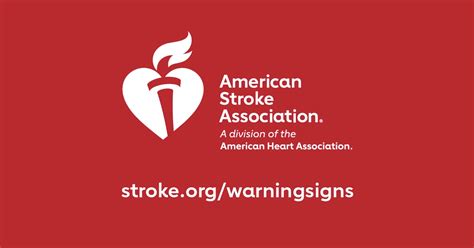
A common childhood virus, varicella-zoster virus (VZV), the culprit behind chickenpox and shingles, may be linked to an increased risk of developing Alzheimer’s disease later in life, according to a new study published in the journal Neurology. The research suggests that the virus, which remains dormant in the body after the initial chickenpox infection, could be reactivated and trigger a cascade of events leading to neuroinflammation and ultimately, Alzheimer’s.
The study, conducted by researchers at University of Oxford, involved analyzing data from a large cohort of participants and revealed a statistically significant association between VZV infection and an elevated risk of Alzheimer’s. While the study does not prove a direct causal relationship, it highlights a potential pathway through which the virus could contribute to the development of the devastating neurodegenerative disease. This finding opens new avenues for research into preventative measures and potential therapeutic interventions targeting VZV to mitigate Alzheimer’s risk.
Researchers emphasized that this is an early finding that warrants further study, and that more research is needed to fully understand the mechanisms by which VZV may contribute to Alzheimer’s disease and to determine whether interventions targeting the virus could reduce the risk of developing the condition.
The Study’s Methodology and Findings
The study, a retrospective cohort analysis, examined the health records of a substantial population over an extended period. Researchers meticulously tracked instances of VZV infection, specifically chickenpox and shingles, and correlated them with the subsequent development of Alzheimer’s disease.
The researchers stated, “We used population-based health records to compare the risk of dementia, including Alzheimer’s disease, in people with and without a history of VZV infection.”
The results indicated that individuals who had experienced a VZV infection, particularly shingles, exhibited a significantly higher incidence of Alzheimer’s disease compared to those without a history of the virus. The researchers carefully adjusted for other known risk factors for Alzheimer’s, such as age, genetics, and lifestyle factors, to isolate the potential impact of VZV.
Potential Mechanisms Linking VZV to Alzheimer’s
While the exact mechanisms remain under investigation, researchers propose several potential pathways through which VZV could contribute to the development of Alzheimer’s.
-
Neuroinflammation: VZV reactivation, particularly as shingles, causes inflammation of the nerves. This inflammation could extend to the brain, triggering chronic neuroinflammation, a known hallmark of Alzheimer’s disease. Sustained inflammation can damage brain cells and disrupt normal brain function, accelerating the progression of neurodegeneration.
-
Amyloid Plaque Formation: Alzheimer’s disease is characterized by the accumulation of amyloid plaques in the brain. Some studies suggest that viral infections, including herpes viruses, can promote the formation of these plaques. VZV reactivation might stimulate the production and deposition of amyloid-beta, the protein that forms the core of amyloid plaques.
-
Tau Protein Tangles: Another key feature of Alzheimer’s is the presence of neurofibrillary tangles, which are made up of misfolded tau protein. Inflammation and other cellular stress caused by VZV infection could contribute to the hyperphosphorylation and aggregation of tau protein, leading to the formation of tangles.
-
Blood-Brain Barrier Disruption: The blood-brain barrier (BBB) protects the brain from harmful substances in the bloodstream. VZV infection can compromise the integrity of the BBB, allowing inflammatory molecules and immune cells to enter the brain, further exacerbating neuroinflammation and damage.
Expert Commentary and Perspectives
Experts in the field of Alzheimer’s research have commented on the significance of the study’s findings.
Dr. Maria Carrillo, Chief Science Officer of the Alzheimer’s Association, noted, “This study adds to the growing body of evidence suggesting a link between viral infections and Alzheimer’s disease. While we cannot definitively say that VZV causes Alzheimer’s, it raises important questions about the potential role of viral infections in the development of the disease.”
Dr. Richard Isaacson, Director of the Alzheimer’s Prevention Clinic at Florida Atlantic University’s Schmidt College of Medicine, emphasized the need for further research. “This study is intriguing, but it’s important to remember that correlation does not equal causation. We need more research to understand the underlying mechanisms and to determine whether interventions targeting VZV could reduce Alzheimer’s risk.”
Preventative Measures and Potential Interventions
Given the potential link between VZV and Alzheimer’s, researchers are exploring various preventative measures and potential therapeutic interventions.
-
Vaccination: The chickenpox vaccine has significantly reduced the incidence of VZV infection in children. Experts suggest that widespread vaccination could potentially lower the long-term risk of Alzheimer’s disease. Additionally, the shingles vaccine, which is recommended for older adults, could help prevent VZV reactivation and reduce the risk of neuroinflammation.
-
Antiviral Medications: Antiviral medications, such as acyclovir and valacyclovir, are effective in treating VZV infections. Researchers are investigating whether early treatment of shingles with antiviral drugs could mitigate the risk of long-term neurological complications, including Alzheimer’s.
-
Anti-Inflammatory Therapies: Given the role of neuroinflammation in Alzheimer’s disease, anti-inflammatory therapies are being explored as potential treatments. These therapies could help reduce the damaging effects of inflammation in the brain and slow the progression of the disease.
The Broader Context: Viral Infections and Alzheimer’s Disease
The study on VZV adds to a growing body of evidence suggesting a link between viral infections and Alzheimer’s disease. Several other viruses, including herpes simplex virus (HSV), cytomegalovirus (CMV), and Epstein-Barr virus (EBV), have also been implicated in the development of the disease.
The “infectious hypothesis” of Alzheimer’s disease proposes that viral infections can trigger chronic inflammation and other pathological processes in the brain, leading to neurodegeneration and cognitive decline. While this hypothesis is still under investigation, it has gained increasing support in recent years.
The Importance of Continued Research
The study on VZV and Alzheimer’s highlights the importance of continued research into the complex relationship between viral infections and neurodegenerative diseases. Future research should focus on:
- Identifying the specific mechanisms through which VZV and other viruses contribute to Alzheimer’s disease.
- Determining whether interventions targeting these viruses can reduce the risk of developing the disease.
- Developing new diagnostic tools to detect early signs of viral infection in the brain.
- Exploring the potential of antiviral and anti-inflammatory therapies to treat Alzheimer’s disease.
The Implications for Public Health
The findings from the study have important implications for public health. If further research confirms a causal link between VZV and Alzheimer’s, it could lead to new strategies for preventing and treating the disease. These strategies could include:
- Promoting widespread vaccination against VZV.
- Encouraging early treatment of shingles with antiviral medications.
- Developing new therapies to target viral infections in the brain.
By addressing the potential role of viral infections in Alzheimer’s disease, we can move closer to developing effective treatments and ultimately, preventing this devastating condition.
Understanding Alzheimer’s Disease
Alzheimer’s disease is a progressive neurodegenerative disorder that gradually destroys memory and thinking skills, and eventually, the ability to carry out the simplest tasks. It is the most common cause of dementia, a general term for a decline in mental ability severe enough to interfere with daily life.
The disease is characterized by the accumulation of amyloid plaques and neurofibrillary tangles in the brain. These abnormal structures disrupt normal brain function and lead to the death of brain cells.
The exact cause of Alzheimer’s disease is not fully understood, but it is believed to be a combination of genetic, lifestyle, and environmental factors. Age is the greatest known risk factor for the disease, with the majority of cases occurring in people over the age of 65.
Symptoms of Alzheimer’s Disease
The symptoms of Alzheimer’s disease vary from person to person, but they typically include:
- Memory loss: Difficulty remembering recent events, names, and conversations.
- Confusion: Disorientation to time and place.
- Difficulty with language: Trouble finding the right words or understanding conversations.
- Problems with visual and spatial abilities: Difficulty judging distances and navigating familiar environments.
- Impaired judgment: Making poor decisions.
- Changes in mood and personality: Depression, anxiety, irritability, and social withdrawal.
Diagnosis of Alzheimer’s Disease
The diagnosis of Alzheimer’s disease typically involves a combination of:
- Medical history and physical exam: To assess the patient’s overall health and identify any other medical conditions that could be contributing to their symptoms.
- Cognitive tests: To evaluate memory, thinking skills, and other mental abilities.
- Neurological exam: To assess reflexes, coordination, and other neurological functions.
- Brain imaging: MRI or PET scans to look for changes in the brain that are characteristic of Alzheimer’s disease.
- Blood tests: To rule out other causes of cognitive decline.
Treatment of Alzheimer’s Disease
There is currently no cure for Alzheimer’s disease, but there are treatments that can help manage the symptoms and slow the progression of the disease.
- Medications: Cholinesterase inhibitors and memantine are two types of medications that can help improve cognitive function in some people with Alzheimer’s disease.
- Lifestyle changes: Regular exercise, a healthy diet, and social engagement can help maintain cognitive function and improve quality of life.
- Supportive care: Providing emotional and practical support to people with Alzheimer’s disease and their caregivers.
FAQ: Childhood Virus and Alzheimer’s Risk
Q1: Does having chickenpox as a child guarantee that I will develop Alzheimer’s disease later in life?
A: No, having chickenpox does not guarantee that you will develop Alzheimer’s disease. The study indicates an association, not a causation. It means that people who have had VZV infection (chickenpox or shingles) may have a slightly increased risk, but many other factors contribute to the development of Alzheimer’s. “We used population-based health records to compare the risk of dementia, including Alzheimer’s disease, in people with and without a history of VZV infection.” Further research is needed to fully understand the relationship.
Q2: Should I get the shingles vaccine to protect myself from Alzheimer’s disease?
A: While the study suggests a potential link between VZV and Alzheimer’s, it is premature to definitively say that the shingles vaccine will protect against Alzheimer’s. However, the shingles vaccine is recommended for older adults to prevent shingles and its complications. Preventing shingles may potentially reduce the risk of neuroinflammation, which is a contributing factor to Alzheimer’s. Consult with your doctor to determine if the shingles vaccine is right for you.
Q3: What other viruses are being investigated for their potential role in Alzheimer’s disease?
A: Besides VZV, other viruses, including herpes simplex virus (HSV), cytomegalovirus (CMV), and Epstein-Barr virus (EBV), are also being investigated for their potential role in Alzheimer’s disease. The “infectious hypothesis” of Alzheimer’s disease proposes that viral infections can trigger chronic inflammation and other pathological processes in the brain, leading to neurodegeneration and cognitive decline.
Q4: What can I do to reduce my overall risk of developing Alzheimer’s disease?
A: While the study focuses on VZV, Alzheimer’s disease is a complex condition influenced by various factors. You can reduce your overall risk by:
- Maintaining a healthy lifestyle: This includes regular exercise, a balanced diet, and sufficient sleep.
- Managing cardiovascular risk factors: Control blood pressure, cholesterol, and blood sugar levels.
- Staying mentally active: Engage in activities that challenge your brain, such as puzzles, reading, and learning new skills.
- Maintaining social connections: Stay connected with friends and family to promote social and cognitive well-being.
Q5: Where can I find more information about Alzheimer’s disease and ongoing research?
A: You can find more information about Alzheimer’s disease and ongoing research from reputable sources such as:
- The Alzheimer’s Association: www.alz.org
- The National Institute on Aging (NIA): www.nia.nih.gov
- The Alzheimer’s Drug Discovery Foundation: www.alzdiscovery.org
- Academic journals and medical publications: Search for peer-reviewed articles on Alzheimer’s disease research.









